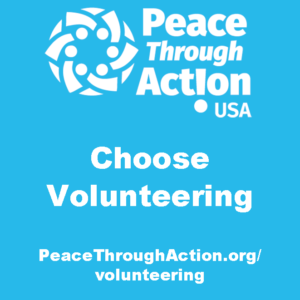What is Volunteering?
Volunteering is time willingly given for the common good and without financial gain, as defined by Volunteering Australia. Volunteers can work either formally through an organization or work informally as an individual for a cause outside of their household. Volunteering encompasses a wide variety of activities and causes, including but not limited to animal welfare, arts and festivals, museums and education initiatives, environmental conservation, faith-based activities and events, work with children, and general community welfare. Political activism is another type of volunteering, as activists work to achieve what they believe to be a beneficial outcome for society. Volunteers donate their time of their own free will; they should not be exploited, and their work should not substitute for paid employment. Neither does volunteering include internships, court-mandated community service, or formal work positions.[1]
[1] Volunteering Australia. (July 2015) Volunteering Australia Project: The Review of the Definition of Volunteering. https://volunteeringaustralia.org/wp-content/uploads/Definition-of-Volunteering-27-July-20151.pdf.
How do people learn Volunteering?
While volunteering is a skill best learned by doing, there are many skills people may learn from volunteering. Volunteers can gain experience in a field they are interested in; for example, someone interested in working as a historian could volunteer as a museum docent to decide if they enjoy museum work. Once at the museum, they can build valuable professional ties and develop skills like teamwork, communication, and public speaking that are useful for finding paid employment.[2] Studies show that volunteers gain new self-confidence and a sense of fulfillment, as well as opportunities to connect with others in the community and better physical and mental health.[3]
[2] Western Connecticut State University. (n.d.) Community Engagement. https://www.wcsu.edu/community-engagement.
[3] Coren, E., Phillips, J., Moore, J., Brownett, T., & Whitfield, L. (2022). An Examination of the Impacts of Volunteering and Community Contribution at a Community Festival Through the Lens of the Five Ways to Wellbeing. International journal of community well-being, 5(1), 137–156. https://doi.org/10.1007/s42413-021-00154-2.
How do people implement Volunteering?
People can volunteer through many different channels, including schools, faith groups, and workplaces, or they can choose to volunteer as an individual by getting involved with their local food bank or homeless shelter, women’s shelter, animal shelter, environmental clean-up group, or any other local institution that looks for volunteer assistance. Some volunteers travel to different parts of the country, or even abroad, to aid people in need. Some organizations, like hospitals or museums, might require their volunteers to undergo specialized training, but many groups simply need another pair of hands.
For what types of circumstances is Volunteering suited?
Volunteering is well suited for developing positive social and emotional behaviors among the volunteers themselves, but depending on the cause the volunteers are working for, volunteers can interrupt aggression and violence between people and groups, and repair the long-term harm that results from aggression and violence. A volunteer at an A volunteer at an organization for racial justice can work to educate others to dismantle racial prejudices, for instance, while another volunteer at a woman’s shelter can help victims of violence recover and empower themselves to rebuild their lives.
Does Volunteering work for preventing or controlling aggression or violence?
Volunteers gain greater mental health from helping others, alleviating symptoms of depression or anxiety. Studies show that volunteers have more social engagement, and that helping others simply feels good.[4] Better mental health and fulfilling social relationships lead to an improved quality of life and lower instances of aggression or violence.
[4]Hopper, E. (2020). How Volunteering Can Help Your Mental Health. Greater Good Magazine. https://greatergood.berkeley.edu/article/item/how_volunteering_can_help_your_mental_health.
Where else might I go to learn more about Volunteering?
- Peace Through Action – Apply to volunteer at Peace Through Action!
- AmeriCorps – AmeriCorps is the federal agency for volunteering and works to provide volunteering opportunities across the country.
- American Red Cross – Work with the Red Cross to alleviate suffering in the wake of disasters, support members of the armed services and their families, and ensure that Americans have access to safe blood and blood products.
- 9/11 Day – This organization, founded by family members of those who died in the September 11th terrorist attacks, works to redefine the day by turning it into a day of community service and good deeds.
- Habitat for Humanity – Work with Habitat for Humanity to construct homes and combat systemic barriers preventing low-income and underserved families from finding stable housing.
Information Sheet-Choose-Volunteering (PDF)
Author: Rachel Scott
Have a suggested addition to this information sheet? Send it to inbox@peacethroughaction.org.
Do Something Right Away to Increase Peace
Subscribe to our YouTube channel
Give a gift of money to support our mission delivery activities
Choose opportunities to take part in our #PeaceBeginsWithWe campaign

